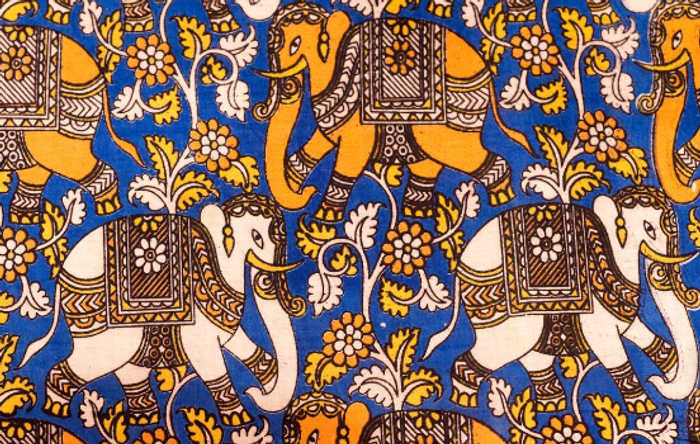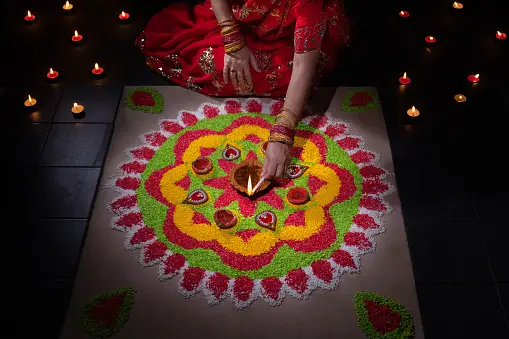Published 20:03 IST, July 29th 2024
Kalamkari, Madhubani And Other Most Popular Folk Art Styles In India
India is home to a vast array of folk art styles. Each region boasts unique artistic traditions, reflecting the country's varied taste, and approach to art.
Advertisement
India, with its rich cultural diversity, is home to a vast array of folk art styles. Each region boasts unique artistic traditions, reflecting the country's multifaceted heritage. From intricate fabric painting to vibrant ground designs, Indian folk art offers a glimpse into the nation's soul. Here are five of the most popular folk art styles that originated in India.

Kalamkari
Kalamkari, meaning "pen work," is a beautiful and intricate form of Indian folk art. Artists hand-paint and block-print on fabric, often depicting scenes from Hindu scriptures. The process involves using a bamboo pen, or 'kalam,' to create detailed designs. In the Machilipatnam style, block prints outline the designs, which are then filled in with natural dyes derived from plants, flowers, and fruits. This art form is renowned for its unique, minute detailing and vibrant colours.
Advertisement

Kolam
Kolam is a traditional art form from South India, particularly popular in Tamil Nadu. These geometric patterns are drawn on the ground, usually at the entrance of homes, using rice flour or chalk powder. Creating a Kolam is a daily ritual for many, believed to bring prosperity and ward off evil spirits. The designs are intricate and symmetrical, often involving complex mathematical patterns.

Kalighat
Originating near the Kalighat Kali temple in West Bengal, Kalighat paintings are known for their by vivid bold outlines and vivid colours. Initially, these paintings depicted religious themes, particularly goddesses, and were sold to pilgrims and tourists visiting the temple. Kalighat art has evolved to include secular themes and satire, making it a versatile and dynamic form of expression.
Advertisement

Mithila paintings (Madhubani)
Mithila or Madhubani painting is a traditional art form from the Mithila region in Bihar. Known for its intricate patterns and vibrant use of colours, Madhubani art is often used to depict mythological stories, nature, and daily life. Artists use natural dyes and pigments, applying them with twigs, fingers, and brushes. The style is distinguished by its use of bold colours and the depiction of eyes, often portrayed larger than usual.
These folk art forms are not just artistic expressions but also carry cultural and religious significance. They continue to thrive, preserving India's rich artistic heritage while adapting to contemporary themes and mediums. Whether displayed in homes or galleries, these art forms remain a testament to India's diverse and vibrant culture.
Advertisement
20:03 IST, July 29th 2024